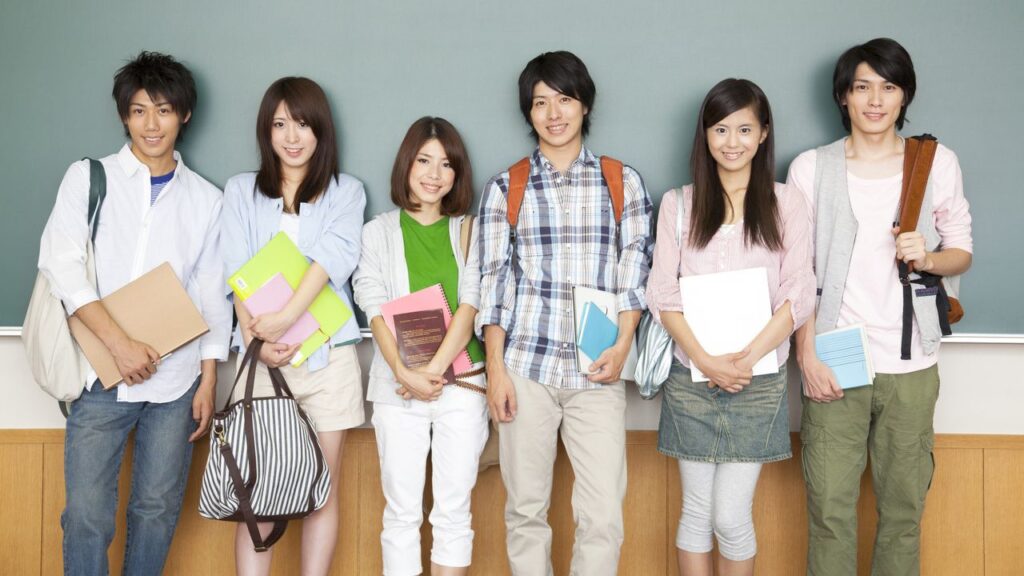In Japan, adulthood has traditionally been seen as beginning at age 20, as stated in a decree from 1876. But starting on April 1, 2022, it dropped to 18 thanks to a change to the civil code. At this age, a person can enter into a contract on their own and is no longer under the control of their parents. as stated in the Civil Code.
Without parental permission, 18-year-olds can sign a contract for a smartphone or credit card, lease a home, or commit to a pricey loan for an automobile or English conversation course. Beginning this April, any contract entered into by a person 18 or older will be their responsibility. Previously, contracts entered into by persons under the age of 20 may be revoked by their parents after the fact.
Without parental approval, the age at which a woman could get married was raised from 16 to 18 to match the age of men. Additionally, it is now permissible for those who experience gender dysphoria to request gender reassignment at 18.
Despite the age of majority being lowered to 18, it will still be illegal for anyone under the age of 20 to consume alcohol or smoke. Only people 20 years or older can participate in public gambling, including wagering on horse or boat races. These age restrictions are based on social factors, such as health risks or the potential for addiction.
As in the past, local governments throughout Japan will continue to hold several coming-of-age rituals for persons who turn 20. This is because many 18-year-old high school students cannot attend such ceremonies because, after all, January is typically a hectic and stressful period for them because they are either preparing for university entrance tests or job looking. Some local governments are contemplating renaming their celebrations.
The Japanese legal age of majority has been reduced from 20 to 18 as of April 1, 2022. Since citizens’ voting age was lowered to 18 in 2016, new laws treat people who are 18 as adults.
The legal age of the majority around the world is now 18 in many nations.
In Japan, the term “age of adulthood” primarily refers to the legal age at which a person can enter into a contract of their own free will without parental consent.
Japan’s population is aging, and its birthrate is dropping. To address this issue, the definition of adulthood was changed to encourage young people to engage in society as soon as possible and to boost the economy.
One of the reasons Japan lowered the age of adulthood was a long-standing recommendation from the United Nations. The UN has also suggested raising the age of consent in Japan, which is 13 years old. While the age of majority has already been lowered, a lowering of the age of consent is currently being prepared by the legislative body and is expected to be lowered in the near future. Learn more on this page.
At what age can you drive in Japan?
Teenagers in Japan can obtain a license to operate a motorcycle or a moped starting at 16. However, the applicant must be at least 18 years old to acquire an “ordinary” driver’s license when they pass the last exam. An automobile may also be bought by a person 18 years old.
Larger vehicles occasionally call for a special license, which can only be obtained by drivers at least 20 years old. The minimum age requirement for a professional driver is 21.
At what age can you purchase tobacco in Japan?
The change to the civil code in Japan does not cover alcohol and cigarettes. Even after 2022, the legal age at which minors can purchase tobacco remains at 20. Suspected teens may even be requested to present identification or verify their age via a touch screen in convenience stores before being allowed to make a purchase. To buy cigarettes from some vending machines, you need a Tasupo card, which was designed to stop minors from smoking.
What age is it legal to drink in Japan?
Alcohol use in public is permitted for Japanese nationals aged 20 and older, and it will remain lawful beyond 2022. According to theory, the minimum age to enter a nightclub is 20. The age for drinking was not lowered even though the legal age of adulthood was changed from 20 to 18.
Japan’s coming-of-age ceremony
In Japan, reaching adulthood is an accomplishment to be honored! Shintoist rites for announcing adulthood are where the custom of “Seijin Shiki” (adulthood ceremony) roots. “Seijin no hi” debuted on the second Monday of January (literally, “adult day”) is observed, and young people turning 20 during the current academic year throng to shrines.


More Stories
The Oldest Perfume Store in Delhi – Discover the Best Attars, Perfumes & Incense at Gulab Singh Johrimal
Experience Timeless Fragrance: Buy Incense Cones, Bakhoor, and Luxury Perfumes Online with Gulab Singh Johrimal in Delhi
Garima Kawariya Designs: Your Destination for Celebrity Fashion Designer Wear in India